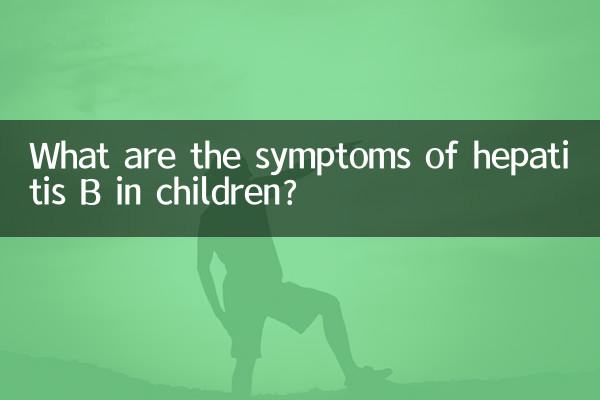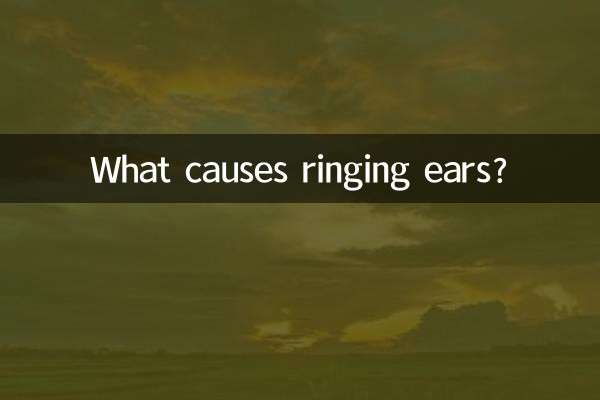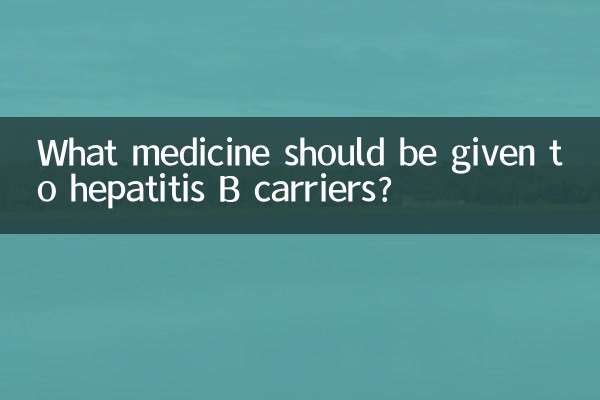What are the symptoms of hepatitis B in children?
Hepatitis B (hepatitis B) is a liver disease caused by the hepatitis B virus (HBV), and children may show different symptoms when infected. Understanding these symptoms can help with early detection and treatment. The following is a structured analysis of possible symptoms and related information about children infected with hepatitis B.
1. Common symptoms of hepatitis B

When a child is infected with hepatitis B, symptoms may range from mild to severe, and some children may even be asymptomatic. The following are common symptoms:
| Symptom type | Specific performance | Remarks |
|---|---|---|
| mild symptoms | Fatigue, loss of appetite, mild abdominal pain | easily overlooked |
| moderate symptoms | Nausea, vomiting, jaundice (yellowing of the skin or eyes) | Need prompt medical treatment |
| severe symptoms | Pain in the liver area, persistent high fever, dark yellow urine | May develop acute hepatitis |
| Asymptomatic | No obvious symptoms, only discovered through physical examination | Common in chronic carriers |
2. Transmission routes of hepatitis B
Hepatitis B is mainly transmitted through the following ways, and parents need to pay special attention to:
| Transmission route | Specific methods | Precautions |
|---|---|---|
| mother-to-child transmission | Transmitted through maternal and infant blood or body fluids during childbirth | Hepatitis B vaccine for newborns |
| Bloodborne | Blood transfusion, sharing syringes, etc. | Avoid sharing medical equipment |
| Body fluid transmission | Saliva, wound contact, etc. | Pay attention to personal hygiene |
3. Diagnosis and treatment of hepatitis B
If your child develops symptoms of suspected hepatitis B, he should seek medical attention promptly for diagnosis and treatment. The following are common diagnostic methods and treatments:
| diagnostic methods | Specific content | meaning |
|---|---|---|
| blood test | Detect hepatitis B surface antigen (HBsAg), antibodies, etc. | Confirmed hepatitis B infection |
| liver function test | Detect transaminase, bilirubin and other indicators | Assess the degree of liver damage |
| Imaging examination | B-ultrasound, CT, etc. | Observe liver morphology |
| Treatment measures | Specific methods | Applicable situations |
|---|---|---|
| antiviral treatment | Use interferons or nucleoside analogs | Children with chronic hepatitis B |
| Hepatoprotective treatment | Use liver-protecting drugs | People with abnormal liver function |
| Vaccination | Get Hepatitis B Vaccination | Prevent infection |
4. How to prevent children from being infected with hepatitis B
Prevention is the key to avoiding hepatitis B infection. Here are some effective preventive measures:
| Precautions | Specific content | Things to note |
|---|---|---|
| Vaccination | Get hepatitis B vaccine on time | Ensure full vaccination |
| avoid blood contact | Do not share toothbrushes, razors, etc. | Pay special attention to the interior of the home |
| hygiene habits | Wash your hands frequently and keep the environment clean | Reduce the risk of virus transmission |
5. Things parents should pay attention to
If a child is diagnosed with hepatitis B, parents should pay attention to the following points:
1.Regular review: Check liver function and viral load regularly as recommended by your doctor.
2.Eat properly: Avoid high-fat and high-sugar foods and consume more vitamin-rich foods.
3.psychological support: Help children overcome psychological pressure and avoid discrimination.
4.avoid infection: Family members should be vaccinated to avoid cross-infection.
Conclusion
Although hepatitis B is a chronic disease, through early detection, scientific treatment and effective prevention, the impact on children's health can be significantly reduced. Parents should pay close attention to their children's physical condition, seek medical treatment promptly, and do daily protective work.

check the details

check the details